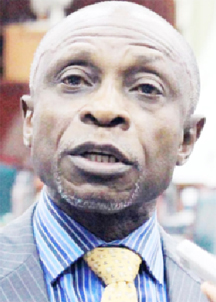The two opposition bills passed by the National Assembly were sent to President Donald Ramotar on February 25 and the 21-day deadline during which he can either assent to or reject the bills has passed with no word on the President’s decision.
The bills are the Fiscal Management and Account-ability (Amendment) Bill and the Former Presidents (Benefits and Other Facilities) Bill 2012. Article 170 (2) of the Constitution requires that the president, who is part of Parliament, assent to bills presented to him following passage in the National Assembly. This article also states that where the president withholds his assent, he must return the bill to the Speaker within 21 days with a message stating the reasons for withholding his assent. The president has said that he would not assent to any bill passed by the opposition unless it is with passed the full agreement of the executive and the full involvement of the executive.
APNU spokesman on Finance Carl Greenidge told Stabroek News yesterday that Clerk of the National Assembly, Sherlock Isaacs wrote him on March 7th informing him that both bills were submitted on the 25th of February for the President’s consideration. Isaacs’ letter was in response to one by Greenidge who last month had urged the relocation of the Parliamentary Counsel from the chambers of the Attorney General and had also echoed criticisms that sending bills and other material to the Attorney General for advice after approval by the National Assembly is inappropriate. “It is neither a legal nor constitutional requirement,” he had said.
Meanwhile, Attorney General Anil Nandlall when contacted yesterday on the status of the bills told Stabroek News that the situation was the same as he had told this newspaper last month–that the bills were still with the Chief Parliamentary Counsel. When asked when the bills would move from there, he said that the Chief Parliamentary Counsel would have to be contacted.
When asked about Nandlall’s statement, Greenidge referred to the letter from the Clerk. “The Clerk is a technical officer… and I would have to assume he would not mislead me,” Greenidge said. He said that he took the letter by Isaacs to be an accurate statement of the facts. “The Clerk has assured me that these things were sent to the President,” he said. It was pointed out to him that the 21-day deadline for presidential assent had passed and Greenidge, noting that he was away, said that he would ask the Clerk about the status of the bills at the next sitting of the National Assembly.

The role of the Attorney General after bills have been passed by the National Assembly has been the subject of debate recently and Greenidge had urged Isaacs to reconsider the procedure currently employed for the submission of bills to the President to be signed into law saying that it is the Clerk’s obligation and responsibility to dispatch the Bill to the President and it is for the President to secure the timely advice of his AG and anyone else he deems fit within the time limit stipulated for his consideration of the Bill and its signature.
Earlier, the long-serving Clerk had said that during his tenure he had never submitted any bill for presidential assent without an “assent certificate” from the Attorney General.
In a previous letter in response to concerns by Greenidge about the two bills in his name passed by the National Assembly, Isaacs had explained that in the absence of Legal Counsel in the Parliament Office, all bills are sent to the Attorney General’s Chambers to ensure that they are properly drafted before they are submitted to the President for assent. “I have never submitted any bill to the President without an assent certificate from the Attorney General,” Isaacs, who has served as Clerk for more than 10 years, wrote in the letter. The explanation came even as Nandlall said that it has been parliamentary convention for his office to certify bills passed by the National Assembly for presidential assent.
Earlier this month, Isaacs had told Stabroek News that he will be seeking legal advice on the sending of bills and other material to the AG following approval by the National Assembly after criticisms that doing so was “inappropriate.”
Recently, in a ruling that lifted a gag on Home Affairs Minister Clement Rohee speaking in the National Assembly, Speaker of the National Assembly Raphael Trotman said that the president cannot withhold his assent for bills passed by the National Assembly except as set out in the Constitution.
“In Guyana, the presidency and National Assembly are creatures of the Constitution. Neither can relate with each other outside of the manner prescribed within the Constitution. For that reason, the National Assembly cannot refuse to entertain a member who is appointed by the executive president as a minister except as permitted by the Constitution. In the same way that the executive president cannot withhold his assent for bills passed by the National Assembly except as set out in the Constitution, which is supreme,” he said in the ruling.
Both bills were strongly objected to by the ruling party during their passage in the National Assembly and the government parliamentarians voted against them.




